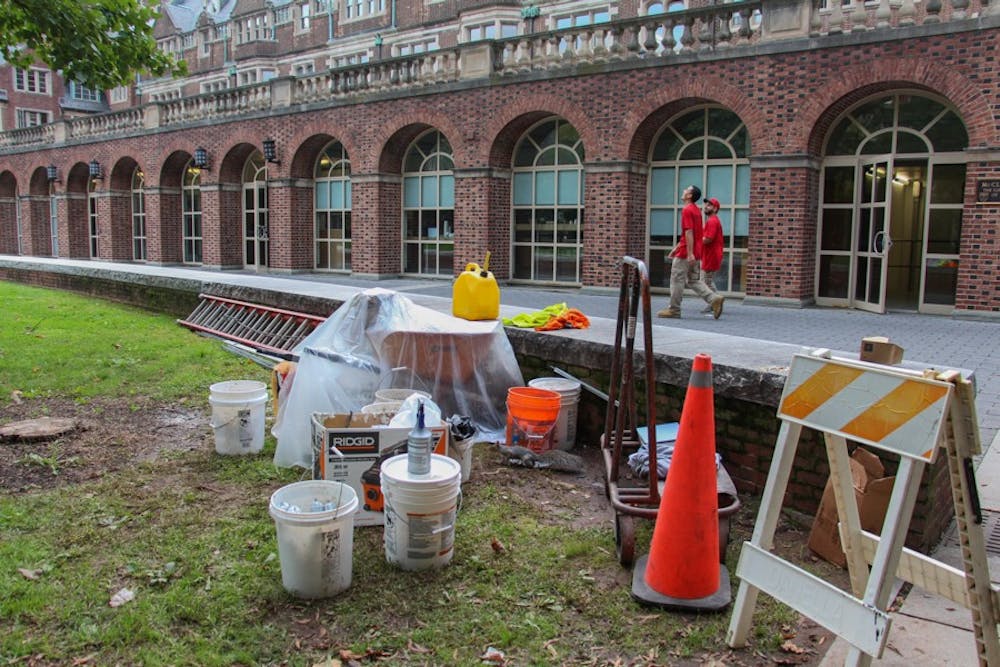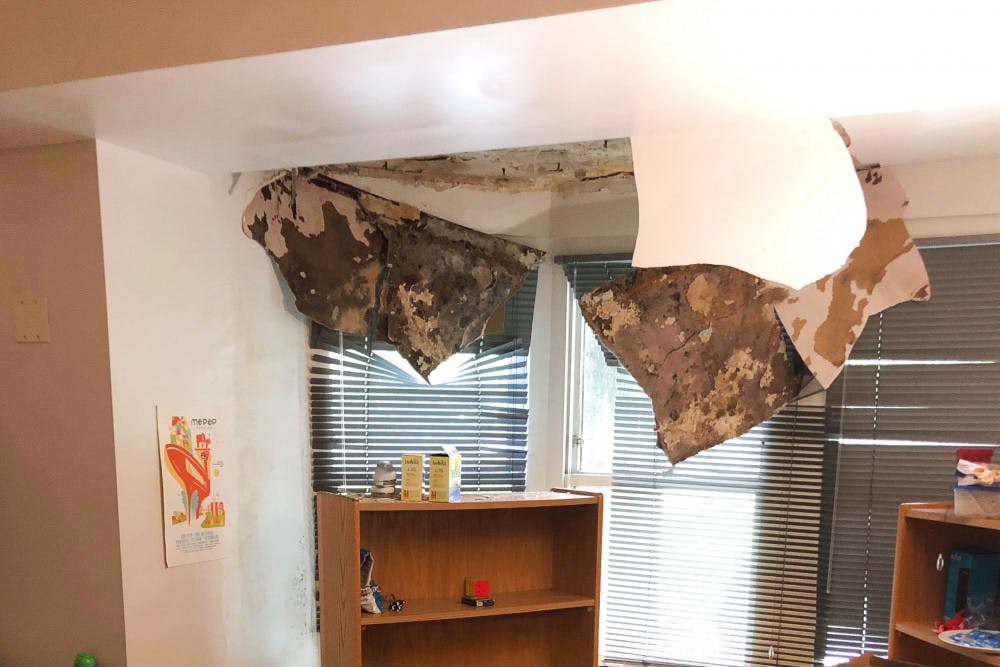
Housing on the University of Pennsylvania's campus has gone through a series of renovations, new projects, and calls for improvement.
Buildings throughout Philadelphia have been tested as the historic city, with ancient buildings and outdated infrastructure, has had to endure the tumultuous weather conditions that have struck the nation as well as our campus.
Many buildings on Penn's campus, too, have been around for decades — some even are over a century old, and they have to withstand the intense cold and heat over the seasons.
Even before the most recent controversy over the new requirement for sophomores to live on campus starting 2024, students were already vocalizing concerns about the quality of on-campus housing options.
Just this past year, the campus has experienced widespread issues in buildings, from burst pipes and mold growth to collapsed ceilings.
As Penn takes steps to remedy these issues, The Daily Pennsylvanian reflects on some of the housing mishaps on campus over the past year.
Ceiling collapses
On Sept. 15, two freshmen had to relocate from the Quad after their ceiling collapsed. A similar incident happened in February 2017 when two college freshmen in Ware College House experienced a ceiling collapse in Butcher Hall on the fourth floor. After calling Penn Residential Services, the two students were informed that they would have to move out of their room, with little information about when they would be able to return.

Mold grows in the Quad
Mold has been growing in the hallways of Quad since late September and continued to grow through the beginning of October. Before fall break, Penn's Facilities and Real Estate Services found mold in 22 student rooms in the Quad. Mold was found in dozens more rooms over the break.
Black mold can cause serious health issues, Student Health Services Executive Director Giang Nguyen said, especially for those prone to allergic reactions. Students have been relocated to nearby hotels and dorms by FRES while they await remediation for their rooms.
Residential services spokespeople have attributed the increased number of reported mold cases to an especially humid summer in Philadelphia.

Cold weather hurts infrastructure
The bomb cyclone that hit the northeast last January resulted in collapsed ceilings, flooding, and burst pipes in Harrison, Harnwell, and Rodin College Houses as students returned from winter break. All three high rises endured extensive flooding due to the burst pipes caused by frigid temperatures.
Numerous reports of burst pipes came in to the Division of Public Safety two days before classes resumed.
Residents in Harrison had been informed via email about rooms being flooded as a result of the burst pipes, with some students having to relocate from their dorm due to buildup of black mold.

Lack of air conditioning
This past August, many freshmen students in Kings Court English College House were forced to sleep in air-conditioned lounges to compensate for the lack of air-conditioning in their rooms. KCECH, Du Bois College House, and Gregory College House are the only on-campus residential houses without air-conditioning, and students endured record high temperatures during the heat wave that hit campus as the semester began.
The Daily Pennsylvanian reported Monday that there were plans to install AC in the three remaining college houses in the works. KCECH and Du Bois will get AC next summer, and Gregory, while still on track to eventually getting AC, does not have a date set yet.
While students were reportedly fighting for space to sleep in cooler common areas, Penn’s Facilities and Real Estate Services offered some temporary solutions to counteract the heat, such as water ice trucks outside of student dorms.

The Daily Pennsylvanian is an independent, student-run newspaper. Please consider making a donation to support the coverage that shapes the University. Your generosity ensures a future of strong journalism at Penn.
Donate







